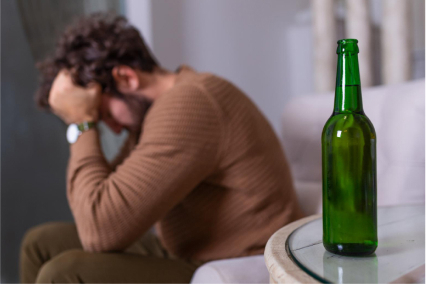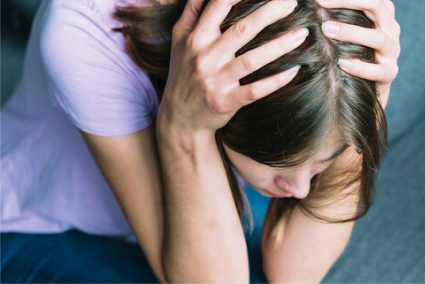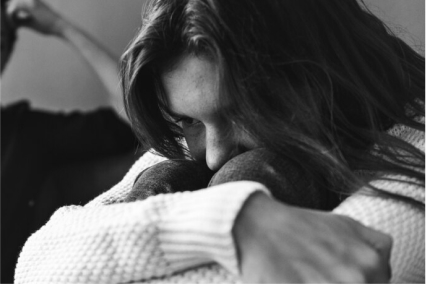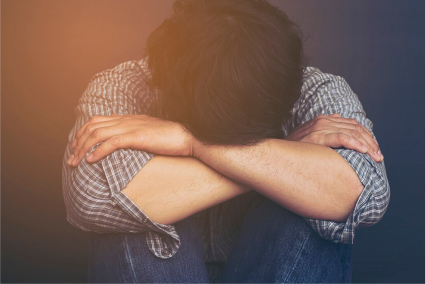Is there an upcoming social event you need to attend? Are you anxious only thinking about it? Maybe you are not just shy. It might be a sign that you are suffering from a medical condition like social anxiety or social phobia. What are these exactly? We Level Up Palm Beach FL will make a thorough social phobia vs social anxiety comparison and help you understand where you are standing. Explore the similarities and differences between social phobia and social anxiety and learn what you can do to make a change and get more joy from life.
Skip to:
What is Social Anxiety?
Social anxiety is more than just feeling awkward in social situations. It is a mental health condition characterized by an intense, often overwhelming, fear of being judged, embarrassed, or rejected by others. While many people experience some level of nervousness in social situations, social anxiety vs social phobia is a significant difference, as the latter is a more severe form of social anxiety. Unlike occasional nervousness, social anxiety can disrupt a person’s daily life and overall well-being.
A person with social anxiety experiences heightened anxiety in social interactions, such as talking to strangers, participating in group activities, or even making eye contact. The fear stems from worrying that others will scrutinize or criticize them, leading to feelings of humiliation or rejection. This is where social phobia vs social anxiety comes into play—social phobia involves a much stronger fear and avoidance of these situations.
For individuals with social anxiety or social phobia, everyday situations—like attending a social gathering, speaking up in a meeting, or even eating in front of others—can feel daunting and overwhelming. The anxiety often leads to avoiding social events, which only exacerbates feelings of isolation and distress. Understanding the difference between social phobia vs social anxiety can help in recognizing the severity and finding the right treatment.
If you’re dealing with social anxiety or social phobia, it’s important to know that you are not alone. Seeking professional help can help you manage and reduce the impact of this condition on your life, allowing you to regain control over social situations.

How do you know whether you have it? If you do, you:
- Fear talking to strangers, meeting new people, or attending parties
- Start sweating, trembling, have a fast heartbeat, or feel dizzy in social gatherings
- Avoid situations where you have to interact with people
- Feel like everybody is watching you or fear that you will say or do something embarrassing
How Does Social Anxiety vs Social Phobia Affect Your Daily Life?
Social anxiety can significantly impact various aspects of your daily life, especially your work or school environment. Due to the constant fear and anxiety, individuals with social anxiety or social phobia might avoid important activities such as meetings, presentations, or participating in classes, which can hinder both professional and academic growth.
In the case of social phobia vs social anxiety, the latter often involves feelings of fear that are more generalized, while social phobia specifically targets social situations where one might be judged, such as speaking in public or meeting new people. This fear can lead to avoidance, making it difficult to form or maintain friendships. As a result, individuals may experience growing feelings of isolation and loneliness.
Constantly worrying about being judged or evaluated also takes a toll on self-esteem, causing a decrease in confidence and self-worth. The line between social anxiety vs social phobia can blur here, as both conditions share the impact of these self-conscious fears, but social phobia tends to be more severe and specific to social interactions.
This ongoing anxiety not only affects your social life but also diminishes your overall quality of life. You may shy away from activities you once enjoyed or avoid trying new things, perpetuating a cycle of avoidance. Ultimately, social anxiety and social phobia limit your opportunities for personal growth, enjoyment, and connection with others.
Get Help. Feel Better. Break-Free.
Premier Accredited Dual Diagnosis Mental Health Centers Near You
No matter past therapy challenges, our dedicated therapists provide unwavering support. Our compassionate behavioral health specialists are committed to standing by your side through it all. When you are prepared to take the next step or want guidance on counseling to transform your life, reach out. We will help guide you to the resources you need for support. There is no pressure or obligation. Call our confidential hotline today.
FREE 24/7 Dual Diagnosis Mental Health Therapy HelplineWhat is Social Phobia?
Social phobia, also known as social anxiety disorder, is a severe and persistent form of social anxiety. Unlike occasional nervousness or shyness, social phobia is a chronic mental health condition characterized by an intense, often irrational fear of social situations. This fear can significantly disrupt daily life, making it difficult to function in social or professional environments.
It’s essential to recognize that social phobia is more than just discomfort in social settings; it is a serious condition that requires professional treatment for effective management. The line between social anxiety vs social phobia is important to understand—while both conditions involve fear of social interactions, social phobia typically presents as a more intense, specific fear that can severely limit a person’s quality of life.
If you have social phobia, you may experience the following:
- Excessive worry about being scrutinized, judged, or criticized by others
- Avoidance of social situations such as parties, public speaking, or even everyday activities like eating in front of others
- Physical symptoms like severe sweating, shaking, blushing, nausea, or difficulty speaking when faced with social contact
- Overwhelming anxiety just thinking about upcoming social events, often leading to procrastination or avoidance
Recognizing these symptoms is critical because social phobia can have a profound impact on personal relationships, career opportunities, and overall well-being. If you’re experiencing these challenges, seeking professional help is crucial for overcoming the difficulties social phobia can present. is essential for overcoming the challenges social phobia presents and improving your quality of life.

Comparing Social Phobia vs Social Anxiety
Both social phobia and social anxiety involve fear of social situations. However, they differ in intensity and impact. To start with, if you have social anxiety, your fear and discomfort are present but can be managed to some extent. You might feel nervous, but you can still participate in social situations. On the other hand, if you have a social phobia, your fear will prevent you from socializing and social activities altogether.
Similarly, with social anxiety, your daily activities will feel uncomfortable. However, you can often still function. You may struggle in specific situations like public speaking. But, with social phobia, you will have a hard time going to work, attending school, and maintaining relationships. Social phobia will make you unable to function in your daily life.
Social Anxiety vs Social Phobia: Key Similarities and Differences
When talking about social anxiety vs social phobia, we need to look at their similarities first. They are:
- Both conditions involve a fear of social situations.
- Both can lead to physical symptoms like sweating and shaking.
- Both can cause avoidance behavior and impact quality of life.
There are differences as well when looking at social anxiety vs phobia. Some of them are:
- Social phobia is generally more severe than social anxiety.
- Avoidance behaviors are more pervasive in social phobia.
- Social phobia has a more significant impact on daily life.
- Physical symptoms are more intense in social phobia.
Interchangeability of Terms and Its Implications
The terms “social phobia” and “social anxiety” are often used interchangeably, but this can be misleading and confusing. The distinction between the two is crucial because it can affect how we perceive the severity of the condition. Using these terms as synonyms might lead to underestimating the impact of social phobia, which is a more intense and chronic form of social anxiety.
Understanding the differences between social anxiety disorder and social phobia is essential, especially when it comes to treatment. Social phobia typically requires more intensive interventions, such as therapy (e.g., cognitive-behavioral therapy) and medication. A clear distinction helps ensure that individuals receive the correct diagnosis and the most appropriate support for their unique needs.
By recognizing the specific nature of the condition, it’s easier to provide tailored care, resulting in more effective treatment and a better quality of life for those affected.

Social Anxiety Disorder vs Social Phobia
Social Anxiety Disorder (SAD) is officially classified as an anxiety disorder and is listed in the Diagnostic and Statistical Manual of Mental Disorders (DSM-5), which is the standard tool used by mental health professionals for diagnosis. SAD is characterized by persistent fear or anxiety in social situations, and it typically includes the following symptoms:
- Avoidance of social situations
- Physical symptoms like sweating, trembling, nausea, or a racing heart
- Intense fear of being judged, embarrassed, or humiliated
To be diagnosed with SAD, the fear or anxiety must be out of proportion to the social situation and last for at least six months. Additionally, it must significantly interfere with daily life—affecting work, school, or personal relationships.
While SAD and social phobia describe the same underlying condition, the primary difference lies in the terminology. “Social phobia” is often used in the context of emphasizing the intense fear component of the disorder, while “Social Anxiety Disorder” is the more commonly used term in medical and clinical settings. Both terms are interchangeable, but “social anxiety disorder” has become the preferred term for mental health professionals and is more widely recognized in modern clinical literature.
Despite the different names, both SAD and social phobia refer to the same mental health issue, and understanding the terminology can help clarify the severity and nature of the disorder. Whether it’s labeled as SAD or social phobia, the treatment and approach to managing the condition remain the same.

Conquer Emotional Pain. Find Peace, Purpose & Happiness.
Experiencing depression, anxiety, or grappling with mental health challenges? Get compassionate and effective dual diagnosis therapy from our caring counselors in a safe and comfortable environment. Take the first step towards your recovery today.
Hotline (888) 680-7311Misconceptions and Distinctions Between Social Anxiety Disorder (SAD) and Social Phobia
Misunderstandings about Social Anxiety Disorder (SAD) and social phobia are common, but clarifying these misconceptions is crucial for better awareness and treatment. Let’s address some of the most prevalent myths:
Misconception 1: Social Phobia is a Different or More Severe Condition Than SAD
To clarify, social phobia and SAD are actually the same condition. They refer to the same mental health disorder, but the severity can vary between individuals. The core issue—intense fear of social situations—is consistent, though some people may experience it more severely than others.
Misconception 2: People with SAD are Just Shy or Introverted
This is a common misunderstanding. SAD goes far beyond being shy. While introversion refers to a personality trait, SAD is a diagnosable mental health condition characterized by overwhelming anxiety in social situations. It often leads to avoidance and can interfere with daily functioning, making it much more than just a preference for solitude.
Misconception 3: Avoiding Social Situations Will Make SAD Go Away
In reality, avoiding social interactions can make SAD worse. While it might feel like a temporary relief, avoidance reinforces the fear and prevents individuals from learning healthy coping mechanisms. Treatment for SAD often involves gradually facing feared social situations and practicing effective coping strategies to reduce anxiety.
Social Phobia vs Generalized Anxiety Disorder
While social phobia (or social anxiety disorder) and generalized anxiety disorder (GAD) share some similarities, they are distinct conditions with different triggers and symptoms.
Generalized Anxiety Disorder (GAD) is a mental health condition characterized by excessive, uncontrollable worry about various aspects of life. This worry is often disproportionate to the actual situation and can severely impact daily functioning. Unlike social phobia, which specifically targets social situations, GAD involves persistent concern about a broad range of events, including work, health, and family issues.
Symptoms of GAD include:
- Persistent worry about different events or activities, which is difficult to control
- Physical symptoms such as restlessness, muscle tension, fatigue, and difficulty concentrating
- Sleep disturbances, such as trouble falling or staying asleep
- Irritability and a sense of being easily overwhelmed
For a diagnosis of GAD, these symptoms must last for at least six months and cause significant distress or impairment in daily life. Unlike social phobia, which primarily affects social interactions, GAD affects a broader spectrum of concerns, making it more generalized in nature.
Understanding the differences between these two conditions is crucial, as they require different approaches to treatment, including therapy and, in some cases, medication.
Comparison Between Social Phobia and Generalized Anxiety Disorder (GAD)
While Generalized Anxiety Disorder (GAD) and social phobia share some overlapping symptoms, they differ significantly in their triggers and the way they impact daily life.
GAD affects a wide range of anxieties related to various aspects of life, such as health, work, and day-to-day activities. Individuals with GAD tend to experience excessive worry over a variety of issues, including financial problems, relationships, or even minor events. The anxiety is more generalized and constant.
On the other hand, social phobia (or social anxiety disorder) triggers anxiety specifically in social situations. People with social phobia fear being evaluated, judged, or embarrassed in front of others. The anxiety is primarily linked to situations that involve social contact or performance, such as public speaking, meeting new people, or attending social gatherings.
Key Differences in Symptoms:
- Social Phobia:
- Triggers: Social interactions and performance-based events
- Symptoms: Profuse sweating, shaking, rapid heartbeat, difficulty speaking, and overwhelming fear of embarrassment or judgment
- Result: Often leads to avoidance of social situations
- GAD:
- Triggers: Any event or activity that causes excessive worry, including health concerns, finances, or family issues
- Symptoms: Restlessness, fatigue, poor concentration, irritability, muscle tension, and sleep disturbances
- Result: Persistent worry that affects general life functioning
While GAD affects a broad range of daily concerns, social phobia primarily impacts social interactions and events requiring personal engagement or performance. Recognizing these differences is crucial for proper diagnosis and treatment.
Is Anxiety Common in Palm Beach County, Florida?
Anxiety disorders are a major issue in Palm Beach County, as shown by the 2019 emergency department data. Anxiety disorder, unspecified, was the top mental health diagnosis, with 2,387 cases reported. Generalized anxiety disorder followed with 432 cases.
Do you suspect you are struggling with an anxiety disorder? Do you know somebody who is? Make a change and seek treatment today.

Treatment Options for Social Anxiety and Social Phobia
Cognitive behavioral therapy is one of the usually used approaches in anxiety disorder treatment. It enables you to spot and modify bad habits and attitudes. It works rather well for social phobia as well as social anxiety. Working with a therapist, you learn coping mechanisms and face your anxieties. Often employed are methods including exposure therapy, in which one progressively faces fearful circumstances.
We also use medications. How do they help? They reduce anxiety symptoms and make it easier to engage in therapy and face social situations.
To get the complete treatment, you will join our holistic treatment in Palm Beach. We use mindfulness practices, including meditation, to help you stay present and reduce anxiety. These practices help you relax and manage stress and anxiety symptoms.
Exercise can bring you many benefits. Regular physical activity can improve your mood and reduce anxiety. Exercise releases endorphins, which are natural stress relievers and can improve overall mental health. When you combine this with a balanced diet, you will improve your mental health significantly. Proper nutrition can affect brain function and mood and help you manage anxiety.
Being around people who are struggling with the same conditions has many advantages. You will get to exchange experiences and stories, get motivation from your peers, and get comfort in knowing that you are a part of a group.
Overcome Your Fears and Enjoy Your Life
Our social phobia vs social anxiety comparison shows you that both of these conditions will impact your daily life and, in the end, your happiness. It is very important to try to understand yourself and be self-aware. Only then will you be able to seek treatment and improve. Not sure about your condition. Reach out to us, do a mental health assessment in Palm Beach, and learn what you can do. We are here to support you and guide you to a quality life.
Improve Your Life
Embark on a free call to our behavioral health program advisors. Explore our dual-diagnosis mental health rehab programs. Each We Level Up treatment center network facility specializes in specific recovery counseling. Call to feel & get better.
- Individualized Care
- Attentive Accountable Team
- First-class Amenities
- Licensed & Accredited
- Recognized 5-Star Network
We’ll Call You
Sources:
Palm Beach County Community Health Assessment Palm Beach County, Florida. (n.d.). Available at: https://palmbeach.floridahealth.gov/programs-and-services/community-health-planning-and-statistics/_documents/Palm-Beach-County-2022-Community-Health-Assessment_FINAL.pdf.





